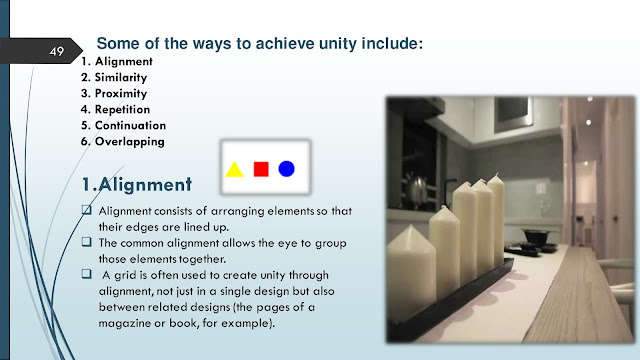The Principles of interior Design are the ways that designers use the Elements of interior design to create good
Compositions (decoration/arragements).
- Design principles are ways of arranging or organising design elements.
- These principles evaluate each element in a design (magnificent vs. mediocre right vs. wrong).
- The way the elements are arranged to create a feeling of stability in a work.
Principles of Interior Design
1.Balance
2.Space
3.Focus/Emphasis
4.Rhythm
5.unity
Balance
- Balance in interior design refers to the proper distribution of objects in a room to create visual balance.
- Balance refers to the distribution of visual weight within a composition.
- Lack of balance disturbs the harmony of a composition.
- A work that is unbalanced visually creates tension.
- Balance is created when there is an equilibrium of elements that need each other and together they create Unity.
There’s three different kinds of
balance:
| ||||
Symmetrical (formal) Balance
- He easiest way to achieve balance is by using the symmetrical or formal form, objects are repeated or mirrored along a central axis.
- It’s when the space is evenly split into two sides that mirror each other.
- Symmetry is created by dividing a space and the elements within it equally.
- Symmetry can create order, formality, calmness and stillness.
- Symmetry Makes Design Simple






























































No comments:
Post a Comment